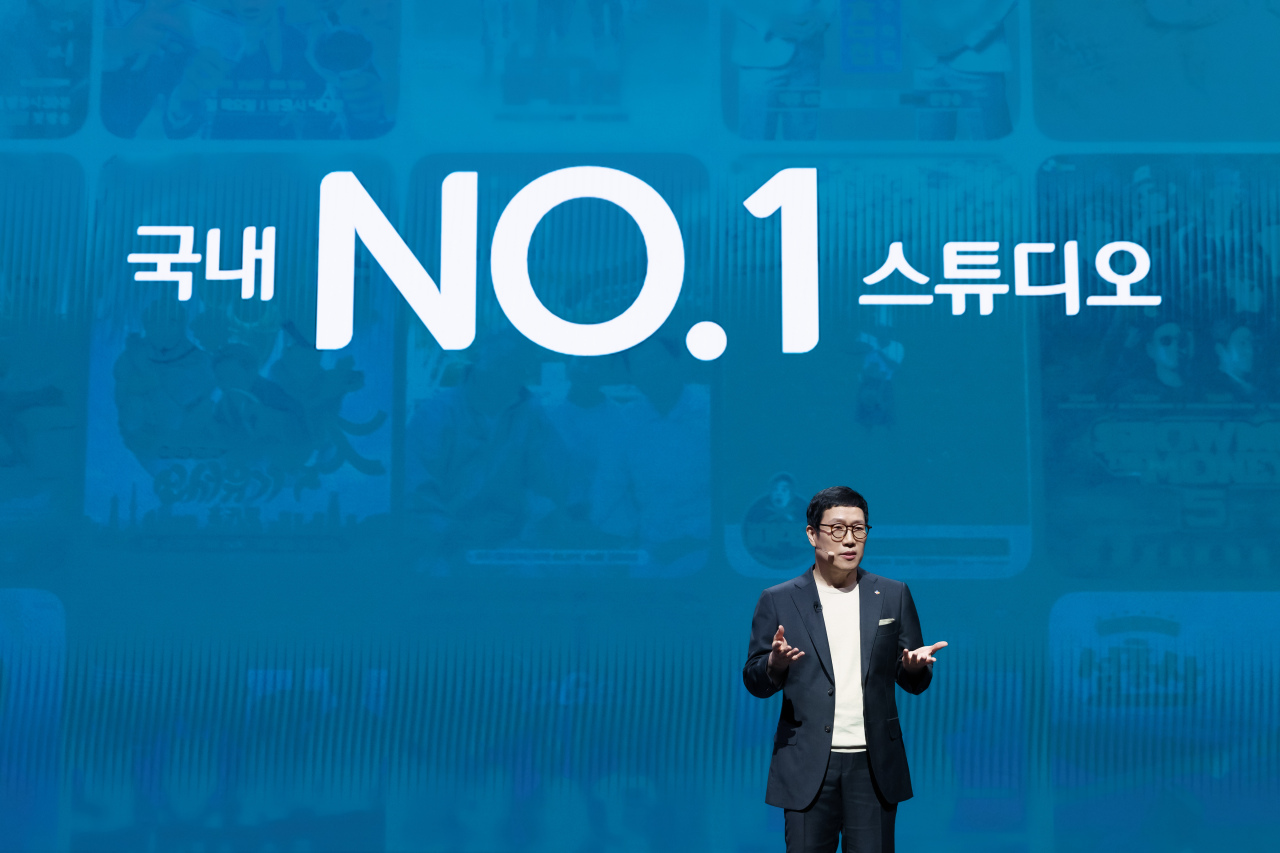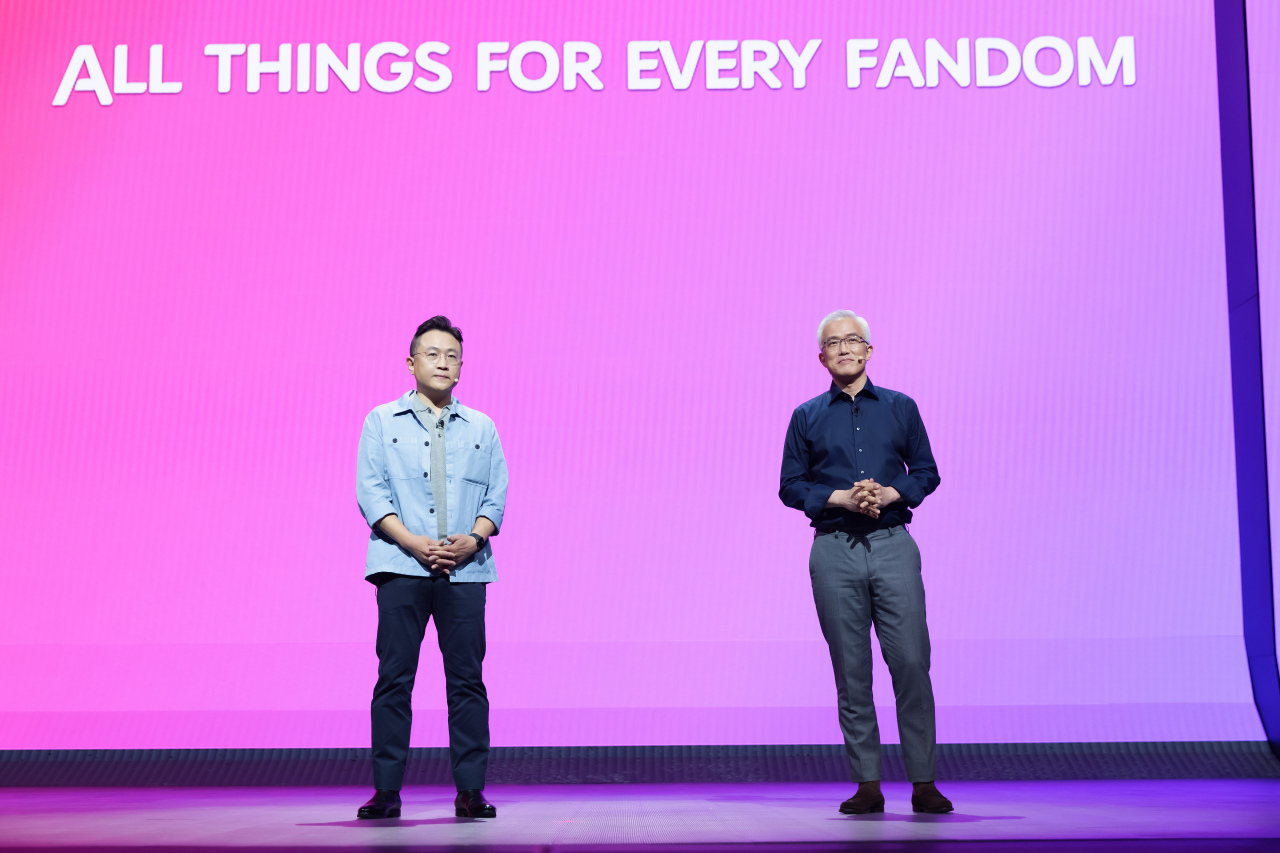CJ ENM hopes to become ‘Asia’s Marvel’ in streaming wars
By Song Seung-hyunPublished : May 31, 2021 - 16:53

Media giant CJ ENM has earmarked 5 trillion won ($4.49 billion) for content creation over the next five years to boost growth of its streaming platform Tving.
The Korean company has also set its sights on becoming a worldwide leader in the entertainment industry, it said Monday.
“We will establish a sound IP creating system and infrastructure, so we have decided to inject more money into creating content,” CJ ENM CEO Kang Ho-Sung said during a press event held in Sangam-dong, Seoul. “This year alone, we will inject 800 billion won into creating content.”
Tving co-CEO Yang Ji-eul and Lee Myung-han, who were also present at the conference, discussed their plan to expand the streaming business.
“We will create up to 100 original content for the Tving platform by 2023,” Yang said. “We also plan to enter the overseas market next year.”
For overseas expansion, Yang added that CJ ENM’s Tving is currently looking into major streaming markets like the US and Japan, as well as in Southeast Asian countries.
“We are also in talks with diverse local streaming platform operators,” he added.
Drawing on the global successes of tvN’s hit franchise drama and variety shows like the series “Reply” and “Three Meals a Day” over the last few years, Tving co-CEO Lee stressed that the streaming platform will further focus on producing quality franchise content.
“The streaming industry is growing but there is also fierce competition with players like Netflix and Disney. It is a golden time to accelerate Tving’s expansion,” Lee said. “More than 50 percent of the newly provided items will be franchise content. We hope to become Asia’s Marvel.”
He also added that the streaming platform will continue to exclusively provide spin-offs of tvN’s popular shows.
“Compared to our competitors, we have yet to prove our strength in the market,” Lee said. “However, I believe that we have what it takes to become a top player. Like restaurants that are known for their high quality food, we have JTBC and tvN’s content studios that can create quality K-content.”
In January, CJ ENM partnered with production company JTBC Studios to jointly operate Tving.
CJ ENM CEO Kang also talked about the company’s plan to expand its music content business as part of its global expansion plan.
“We have outstanding audition programs like ‘I-Land’ and ‘Super Star K.’ We will create more auditions like this to find and produce more K-pop idols,” Kang said. “The boy band Enhypen that was created through ‘I-Land’ recently debuted at No. 18 on the Billboard 200 chart and boy band Jo1, which debuted through our program ‘Produce 101 Japan,’ also is becoming popular in Japan with its song topping the Oricon Chart.”
The company is currently co-producing a K-pop idol audition program in South America with local partner HBO-Max, Kang added.

During the conference, Kang also talked about changes needed for the development of the Korean content industry.
“The distribution structure should be improved. When we sign a deal to provide our content to IPTV operators, we only receive one-third of the production fee from them. In the US, content creators receive more than 100 percent,” he said.
Kang explained that under the current system, CJ ENM has to earn the rest of the production fee through advertisements and sponsorships, which can hinder the growth of quality content.
“If this does not change, content producers will eventually line up to sell their content to global streaming platforms,” Kang said. “But in return for their production fee, they will have to hand over their IP rights, which make them subcontractors. This structure should change.”
By Song Seung-hyun (ssh@heraldcorp.com)
-
Articles by Song Seung-hyun



















